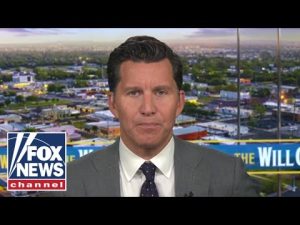In Washington, news has emerged about Cortney Merritts, the husband of former Congresswoman Cori Bush, facing federal charges for wire fraud. It’s reported that he allegedly filed fraudulent applications to secure pandemic relief funds, totaling $20,832. For many, this sum might seem significant, but the cost of engaging in such illicit behavior could far outweigh any immediate financial gain. The justice system often looks unfavorably upon such actions, which raises questions about the judgment and integrity of those involved.
People often question why individuals with stable incomes and positions of influence resort to such tactics. Cori Bush, while serving in Congress, made a decent salary, as did her husband. Still, it’s alleged that they sought more money. Bush has previously been linked to other financial controversies, such as paying her husband a substantial amount for serving as her bodyguard. With both having legitimate sources of income, one wonders why there was a need to apparently grasp for an additional $20,832 through fraudulent means.
The discussion around this scandal inevitably leads to broader questions about financial ethics and responsibility among public officials. While many lawmakers engage in questionable financial activities that remain within legal boundaries due to loopholes, outright fraud crosses a line that demands accountability. There is a pressing need to ensure that those who serve in government, and those associated with them, uphold the highest ethical standards, rather than exploiting their positions for personal gain.
Ultimately, the allegations against Merritts and the past controversies surrounding Bush reflect a deeper issue within the political sphere. Complacency towards unethical behavior only emboldens others. When individuals in positions of public trust misuse resources, it undermines faith in the institutions they represent. It is crucial for citizens to demand transparency and hold officials accountable to maintain the integrity of government.
This case serves as a reminder of the importance of ensuring that public service focuses on dedication to the people, rather than personal enrichment. Stronger systems of accountability and transparency can help deter those inclined to exploit their positions. As investigations proceed, it reinforces the message that unlawful activities, especially by those closely tied to government, come with consequences, emphasizing the need for stricter penalties for such misdemeanors.







